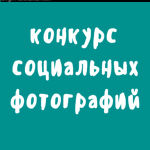Kazakhstan-Germany: It All Starts With Trade
Tax breaks is not a key point for German businessmen
Germany, which is famous for its innovative technologies and highly-developed mechanical engineering, is a promising and important partner for Kazakhstan. Head of the German Economy Representative Office for Central Asia Yorg Hetch told us about how far the economic cooperation between our countries progressed in recent years.
What is the current data of the external trade between our countries?
Germany remains the principal European trading partner for Kazakhstan. According to last year's results 5.5% of all goods imported into your country were shipped from Germany. Whereas Kazakhstan is accounted for 85% of Germany’s foreign trade turnover with the five Central Asian Republics, which also makes it our main partner in this region. If we consider the situation over time, in years 2008–2009 there has been a large decline of mutual trade, mainly due to the economic crisis. Then the descending trend has changed its direction towards the growth. Already in the year 2013 the volume of our trade reached 6.7 billion Euros, which is 20% more than the year before. There have been qualitative changes as well. It is no secret that a large part of the trade pattern between our countries have been traditionally covered by commodity exports from Kazakhstan, so the fact that it was in the year 2013 when its volume expanded, including growth due to imports from Germany, could not fail to please. We understood that your country has demand and means to purchase our high-tech products.
Unfortunately, in the past year in connection with devaluation of Tenge in February and slump in prices of raw materials the picture has changed again. Trade turnover went down to 6.16 billion Euros, mainly due to decrease in demand for German products.
How the situation develops further remains unknown. Most recently we have experienced shock from the new quotation price adjustment of the rate of Tenge, and this is likely to have a negative impact on the realization of the investment projects and, as a consequence, trade turnover between our countries. The population of Kazakhstan and business that receives its income in Tenge will have decrease in the purchasing power. On the other hand I hope that the main objective, pursued by the Government of Kazakhstan taking such measures, to increase the competitiveness of your export-oriented enterprises, will indeed be achieved.
A similar situation can be seen in Germany: lately Euro significantly weakened compared to the US Dollar, and this has a positive effect on our export potential.
What German products are particularly in great demand in our country?
First of all this is, of course, all sorts of mechanical-engineering equipment that comes to Kazakhstan as part of realization of industrial investment projects. If you go into details, an important role here is played by the formation of new segments in your economy and government policy aimed at improvement of energy conservation and energy efficiency. Today in Kazakhstan attention is being increasingly focused on the equipment in the field of RES. Over the course of last two to three years our rep office organized several business events involving German manufacturers operating in that field. The last conference was held in July of this year in Astana and in November a similar event will be held in Almaty. German entrepreneurs are unaccustomed to meetings with a sole purpose of having a chat. Suffice it to say that as an organization providing support for such meetings we are obliged to find and organize negotiations with at least six potential partners for each corporate participant of delegation. And based on the outcome of already completed negotiations we see that the Kazakhstani businessmen are ready for the real partnership.
German companies are interested in sectors related to medical equipment and agriculture. Kazakhstan is experiencing fairly serious problems with the technology of transportation, processing and storage of agricultural products. Plenty of fruits and vegetables go bad, and shelves in supermarkets are mostly stocked with imported products. And I see here very good perspectives for German business with relevant technologies. Also there is the possibility of supplying cotton processing equipment to the southern regions of Kazakhstan. As you can see all this is mechanical engineering again.
What is your assessment of the investment climate in Kazakhstan for German companies?
The biggest problem not only for Kazakhstan but also for all of Central Asia is that every foreign partner here is looked upon as potential investor ready immediately to invest in production. But this is a myth. For example lets take German companies working in Kazakhstan. According to our information (although it is difficult to obtain accurate statistics) there are 350–400 companies. And this is mainly small and mid-sized business. Those are companies primarily interested in finding local partners in order to sell their goods and services together. Generally they are capable of making large investments.
And there is no way of influencing that with incentives or preferences. For our companies tax breaks is the last argument in making investment decisions. For the German businessman in the first place it is important to have well-established market and demand, raw material, educated labour force, access to the electricity, gas, infrastructure. Only when he sees that making a product in one or another country really turns out to be cheaper he begins to seriously consider establishing his production there.
If the Germans simply told: “Invest money into the interesting project and we will free you from taxes”, – they will only nod out of courtesy. The most important argument is the existence of stable demand on the market and possibility of business growth in at least 3–4 years.
Of course German companies are considering Kazakhstan primarily as a base to promote their products in Central Asian region. Few will organize production here to ship goods to, let’s say, Moscow. German companies operating in Russia for a long time has been doing it directly. Primary markets for our enterprises (besides Kazakhstan’s) are your Central Asian neighbours.
In this regard, considering paying capacity and the economic potential, your country is the best launching ground. Even the fact that, as I have already mentioned, much more German companies are registered here than in Uzbekistan, Turkmenistan, Tajikistan, Kyrgyzstan shows that Kazakhstan has a more attractive investment climate.
We have good examples of companies that successfully implemented investment projects in your country – “Metro”, “HeidelbergCement”, “Knauf”, “ThyssenKrupp”, “Isoplus”, “Bemer”, etc. If the Germans established their businesses here, it means that you can work in Kazakhstan. Another thing is that they too are representatives of SME. And volume of their investments is not comparable with investments that are going into the commodity sectors of your economy.
How has the business landscape changed in our country with implementation of industrialization programme?
Certainly there has been a change for the better. First of all, already for more than a year German businessmen can come here for 14 days without a visa, which makes it easier to establish business contacts. Before our rep office, as an organization entitled to issue invitations for German citizens in order to obtain a business visa, used to process many requests about this kind of support. Since last year their number decreased drastically.
Secondly, Kazakhstan’s small and mid-sized business, not fast, but evolving much more, many local businesses improved in strength and have stable relations with consumers. It is much easier to be in partnership with such companies – entrepreneurs of the same level always quickly find a common language.
With regard to participation in state programs, big projects, they are practically inaccessible for the Germans. Foreign investors get special privileges if they invest more than $30 million. Who in Germany will invest that kind of money? On the other hand, these programs are interesting for small and mid-sized companies because they help to understand which sectors government is interested in developing more. And based on that they can asses demand of their products.
What are the problems and disadvantages holding back further development of partnership relations between businessmen of the two countries?
First and foremost is the bureaucracy. For example, it is very difficult for Germans to get a work permit in your country. Yes, there are sections in Kazakhstan’s legislation that clearly spell out: for who, how and in what time frame such permits are issued. But unfortunately, in different regions of the country approach to this issue varies, expounding the laws. The entrepreneur can be requested to present additional documents, causing a delay in obtaining a permit.
The second point, which is typical not only for Kazakhstan, is ability to protect your rights of investor. For example, if the International Court of Arbitration ruled that German citizen was right and money has to be returned to him, it does not necessarily mean that in Kazakhstan such ruling will be fulfilled.
The good news is that our partners are ready to look into these and other problems quite openly. We discuss that with Vice-Minister Albert Rau as part of economics and trade intergovernmental panel during the meetings with Ministry for Economic Affairs and Energy of Germany. But there are things that can’t be changed based on the order of single Ministry. We feel desire to make our lives easier on the part of Kazakhstani partners, but they have not yet been able to solve certain issues. On the other hand, foreigners themselves sometimes forget that they are working in another country and must abide by its rules and laws. Sometimes you need to be more objective. It is a different story when the government changes the rules of the game, which were specified beforehand.
What role does the German Government play in supporting exporters? How, in your opinion, Kazakhstan could use German experience?
We have a strict separation of the industry, and the economy as a whole, from the government. Another thing is that the government can and should provide certain assistance to entrepreneurs. The goal of the government is to facilitate access to new markets for entrepreneurs. And on the political level as well. Germany has various programs of the financial support for participation of German companies at exhibitions inside the country and abroad, both on federal and regional level.
For example, on the website of AUMA – Association of the German Trade Fair Industry you can find programs of organization of collective expositions for German companies on foreign exhibitions under the united brand “Made in Germany”. In this case the government is financing display stand rental.
In addition, operating under the Ministry for Economic Affairs and Energy of Germany there is Germany Trade and Invest – trade and investment department whose task is to collect and analyse information on all world’s markets, to track new opportunities in other countries. Addressing there entrepreneur can receive free information about legislation changes in one or another country, which goods, equipment or technology are needed there. Therefore usually German businessmen go abroad already very well prepared. They do not waste time searching for information.
Another example of our rep office work. Even though we are the part of the The Association of German Chambers of Commerce and Industry (DIHK), 80% of our budget is financed by the government. Our primary goal is the practical work, focused on that economic contacts between Kazakhstani and German entrepreneurs does really happen. I do participate in all bilateral meetings and boards, protecting the interests of German companies. And it is also one of the forms of business support.
What tasks are assigned to the rep office of the German economy in Central Asia today?
We have a big practical work ahead – several business events are planned within the next few months. Between September 7 and 11 delegation of German entrepreneurs will visit Kazakhstan as a part of entrepreneurship support programme. On the 8th of October in Almaty there will be held IV German-Kazakh Logistics Forum “Kazakhstan: Bridge between Asia and Europe”, and on the 9th of October traditional, already 17th, Day of German economy in Kazakhstan will be held. This time chosen theme is “Green technology” and investment climate in Kazakhstan” Two more business delegations will arrive here from Germany in September. In November, also in Almaty, three days long project on energy efficiency is planned. I hope that through these activities the German businessmen will find new reliable partners in Kazakhstan.










